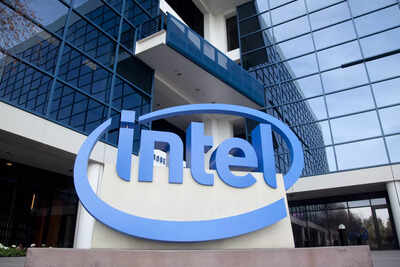After Donald Trump asks Intel CEO to resign, former directors call for a new company, say: Only a dramatic… |

Four former Intel board members are backing President Donald Trump’s surprise attack on CEO Lip-Bu Tan but are pushing for an even more radical shake-up: spinning off Intel’s manufacturing arm into an independent company to secure America’s chipmaking dominance.In a collective statement provided to Fortune, former directors Charlene Barshefsky, Reed Hundt, James Plummer, and David Yoffie called for a dramatic restructuring focused on emancipating Intel’s “Foundry” business–the manufacturing assets where Intel produces semiconductor chips for its own products and third-party customers.The group pointed out that Intel is on its fourth CEO in seven years with little improvement in results, arguing that only a dramatic break could restore Intel’s competitiveness and protect US national security interests.
Trump’s demand follows security concerns over CEO’s China ties
The mounting pressure comes after Trump publicly demanded Tan’s resignation on Truth Social, calling him “highly conflicted” following Senator Tom Cotton‘s warnings about the CEO’s extensive Chinese business connections. Cotton’s letter revealed that Tan “reportedly controls dozens of Chinese companies,” with at least eight having ties to the Chinese People’s Liberation Army.Tan defended himself in a memo to Intel employees, stating: “There has been a lot of misinformation circulating about my past roles at Walden International and Cadence Design Systems. I have always operated within the highest legal and ethical standards.” The Malaysian-born CEO, who has lived in the US for over 40 years, emphasized his commitment to American national security.
Former directors propose foundry split to rival TSMC
The former board members’ proposal would create a new, independent manufacturing entity with its own CEO and board, positioned as an alternative to Taiwan’s TSMC for both commercial and national security requirements. They called for remaining CHIPS Act funds to support the new company and help “persuade American design firms to place orders.”Intel has fallen behind competitors like Nvidia and TSMC in recent years, with its chips now two generations behind rivals. The company secured $8 billion in CHIPS Act subsidies–the largest grant to a single company–making Tan’s Chinese connections particularly problematic for national security officials as the drama continues to unfold in the semiconductor industry.–
Discover more from Supreme News Today
Subscribe to get the latest posts sent to your email.


